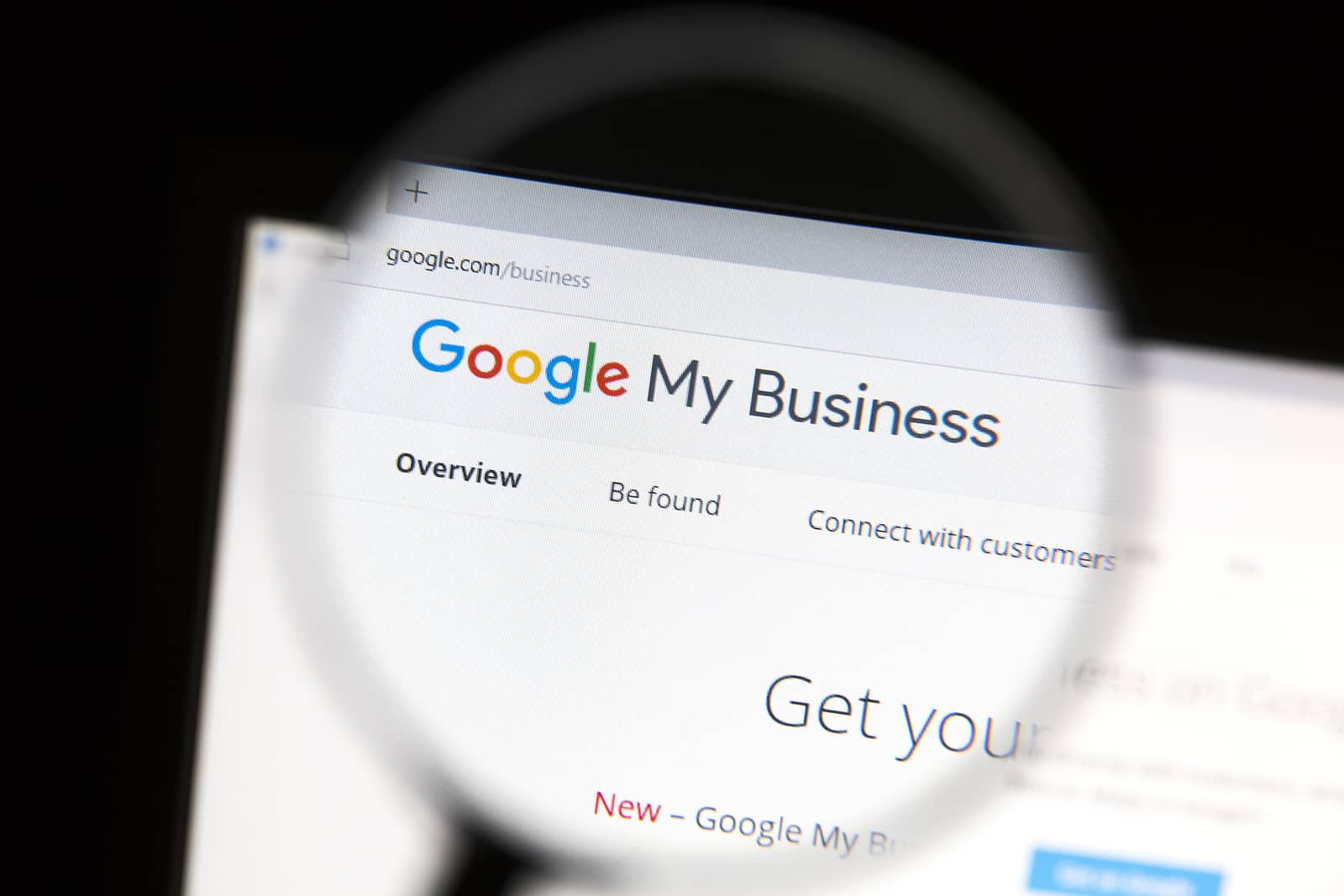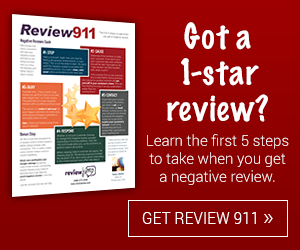
I recently had the pleasure of reading Local SEO Guide’s 2016 Local SEO Ranking Factors Study, put together by Andrew Shotland and Dan Leibson.
They haven’t yet revealed all of their results, and the amount of data they collected was huge, but they found some surprising information about local search rankings.
I’ve long been curious about local search rankings, so I love this kind of stuff. Everyone who does digital marketing for a local business has wondered about what it takes to rank in Google’s coveted local three-pack results.
As you may already know, I did my own study on one local ranking factor some time ago. I analyzed over 100,000 local listings to see how Google reviews affect Google search rankings. If you haven’t read my report, you can check it out here.
Spoiler alert: reviews matter for local search rankings.
But what else matters? Surely, there are thousands of ranking factors that go into any local listing’s ranking position. We may never know or understand what Google’s search algorithm takes into account, but with Andrew and Dan’s findings in hand, we have a clearer picture.
And some things about that picture surprised me.
Here’s what didn’t surprise me: content and keywords still matter. Longer-form, user-focused content on your location pages is important. It’s important that you carefully target your keywords and write content around them, and it’s important that your content is readable to actual humans.
Another thing that didn’t really surprise me– if your business name contains your keyword, you’ll probably rank higher. Google has cracked down on “exact match domains” in the past, and has also taken an aggressive stance against keyword stuffing. But anyone who’s performed a Google search in the last few years knows that oftentimes less trustworthy or relevant results rank high in local search because the business’ name contains their keyword. Spam can still rank really well, unfortunately.
Now, let’s get to the surprising stuff.
1. Citations May Not Matter As Much As We Thought

I’ve spent a lot of time in my life helping my clients out with citations. In fact, we compiled a robust local citation list to help out small businesses and the agencies who serve them. You can find it here.
As it turns out, though, citations may not matter in the way we thought they did.
But don’t freak out– citations are still important. It’s just that stockpiling citations, especially once you’re already ranking, likely won’t help move the needle any further. That surprised me, too.
If you don’t have your citations in order, however, it’s still best to get them sorted out. Make sure they’re accurate, and make sure you have enough of them. But if you’re already ranking, don’t invest too much time in citations.
As Andrew Shotland says of his own findings in a piece at Search Engine Land, “So citations appear to be foundational but not a competitive advantage.”
2. Links are Here to Stay

We all know that links are important for search engine visibility, but how important are they for local listings?
We’ve heard local SEOs and the “link earning” people tell us that to rank locally, you just need a good website, good content, citations, good on-site SEO, and a complete Google My Business profile.
As it turns out, links still matter, even when you want to rank in a local pack. Obviously, these links need to be relevant, either to your geographical location/community, or to your industry. But they still matter more than almost any other ranking factor.
Here’s what Andrew Shotland says:
“… we were surprised at how links appeared to have the strongest correlation [of all the factors we studied] with positive rankings. Perhaps the biggest surprise was that Google’s infamous Toolbar PageRank correlated with positive rankings, implying that sites with older links are generally doing better.”
So, get some links built. Yesterday.
3. City and State Names in Titles Aren’t Effective

If you’ve ever tried to optimize a website for search engines, you’ve been frustrated by composing a perfect page title that fits a strict character limit. After all, how do you fit your keyword, page title, geographical location, and business name all into one title?
You might not have to worry about that anymore. At least the city and state part.
I imagine Google is sophisticated enough to ascertain your physical location based on your contact page and your Google My Business profile. If not, they must have some other way of knowing. Their knowledge is near-infinite, after all.
As Dan Liebson writes,
“It has long been an assumption that using of city and state intags, in URLs and on page copy would influence how you ranked in those cities, but the data shows there is no statistically significant correlation with this tactic and increased Google My Business performance.”
So, the good news is we can make clearer, more user-focused titles without stuffing a bunch of city and state names in with the relevant stuff.
4. The Local Packs Are Full of Strange, High-Ranking Spam

Reading Andrew’s piece on Search Engine Land led me down a little bit of a rabbit hole. We all know spam exists– but did you know how much spam exists in Google’s local listings packs?
I really didn’t.
Sure, I came across some amount of spam when I did my local search analysis, but I didn’t know how deep it went. This hearkens back to what I said at the beginning of the post about having your keyword in your business name. That’s something spammers can take advantage of, and they do so in strange ways.
And they spam the listings in other, stranger ways, as well.
In this article, Joy Hawkins weaves a tale of fake locations, hijacked listings, keyword-stuffed business names, and hidden addresses.
This one really caught me off guard:
“This is a really old trick that still works very well. If a business wants to rank in a city that they’re not located in, they go get a fake address in that city (P.O. box, virtual office, a condo you own and so on). It’s extremely easy to verify these in GMB, since you’ll get the verification postcard when it arrives.
These stay on the map for years and rank extremely well. Worst-case scenario is that you get caught and Google ends up removing the listing. They’ll still keep your legitimate business listing, so really, no harm done.
I had a former client do this five years ago, and I thought I’d check to see how it was doing. He used a mailing service in a big city. The listing was still live, still verified and ranked in the top three for an extremely difficult keyword in one of the largest cities in the USA. He gets about 13,000 impressions a month — impressions that should be going to real businesses that are actually present in this city.”
Spam still ranks well, so users have to remain vigilant. But you can differentiate yourself from the spammers, which brings me to my next point…
5. Reviews, Photos, and Verification are Vital

If I didn’t think reviews mattered, you wouldn’t be reading this blog post or browsing this website right now.
I believe in the power of reviews– both as a ranking signal, and as an indication that a given business provides a good product and/or service. Authentic reviews are helpful for both consumers and businesses.
I don’t believe Dan and Andrew studied reviews to the degree that I did, but they did have an interesting, review-related takeaway in their report.
It seems that reviews, photos of your business and your staff, and other information contained in your Google My Business profile legitimize you in the eyes of your customers, and in the eyes of Google’s ranking algorithm.
From Andrew:
“The data showed that factors like having reviews, photos and/or owner-verified businesses all correlated with strong rankings. It’s hard to say if this helps them rank well or if it’s because they already rank well so they attract more engagement, but it’s safe to say that beefing up your Google My Business pages isn’t a bad way to spend your Local SEO time.”
We’ll never know the entire scope of which factors Google uses to rank local listings or websites. That’s their secret to keep. But when some of the brightest minds in local SEO analyze huge amounts of data, we owe it to ourselves to read and act on their findings.
Local search is competitive, and it will become increasingly competitive as more businesses begin to take it seriously. Google is also increasingly moving toward a pay-to-play model for local listings, both with AdWords and sponsored listings.
If you want a fighting chance in the local SERPs, it looks like you’ll need to seriously consider links, reviews, and a robust and verified Google My Business profile.
Thanks for reading!
- Brodie







